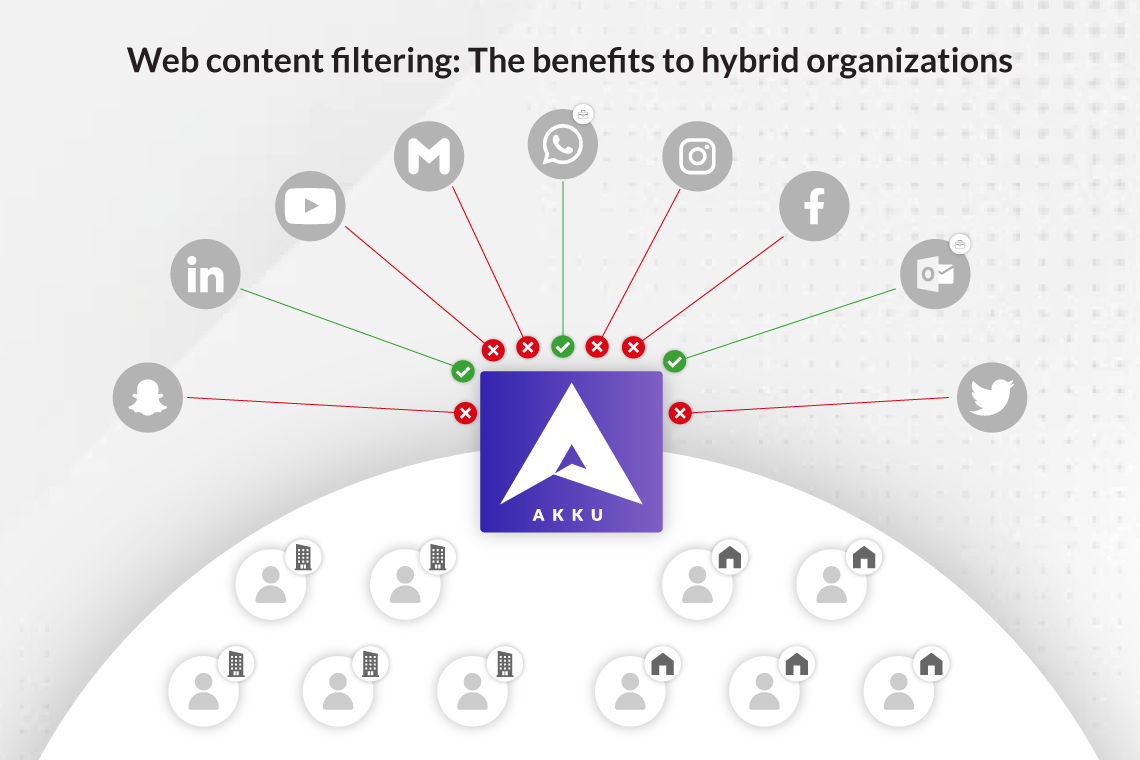The main objectives behind web content filtering are accuracy, scalability, and maintainability and unless you have the right service provider working with your organization, these three objectives are going to be hard to meet.
It’s because the three are like cogs in the wheel, and every one of them counts. Accurate blocking makes scalability and maintenance difficult, while easily scalable and maintainable content filtering systems may not be as accurate.
That’s why content filtering as a service is constantly evolving to address all of these issues and ensure enterprises have a multi-layered defense strategy in place against viruses, malware, phishing attacks, and so on.
First, let’s look at why your hybrid organization needs it
- Managing compliance requirements:
By blocking offensive or distracting sites such as social networking platforms and video streaming services on a corporate network you are improving employee productivity as well as ensuring you are managing compliance requirements.
- Managing bandwidth:
Web content filtering and YouTube category-based filtering enable organizations to track and regulate access to websites based on their content categories, it can prevent the use of high bandwidth sites like streaming sites that can reduce network performance.
- Managing cyber threats:
Web content protects the network by blocking sites that are high-risk, spam, and malicious websites, as well as preventing data leakage. Websites can be blocked by category. For example, websites that come under categories such as Social Media or Entertainment can be blocked.
So, why not just use a firewall, you may wonder.
Well, you can, but the firewall will naturally block particular websites based on defined rules, and that means you cannot allow sub-categories within the website to be whitelisted. For instance, say, a channel on youtube. If your firewall is set to block youtube, the site as a whole will be inaccessible.
The second reason a firewall may not be a perfect choice is that it depends on the internet connection, not on the user or device. And in this era of hybrid working, firewalls can be bypassed if users connect to their home internet.
What you want is to keep the company devices safe and protect them from the risk of compromise even if they access the net from an outside firewall.
Use content filtering the right way
Content filtering is a tool and like any tool, knowing how to use it correctly will help you accomplish your goal. The right service provider can help you navigate the realm of web content filtering.
Take Akku’s content filter for instance. It can be configured to whitelist and blacklist sites. Even within the whitelisted sites, like for instance, YouTube, the Akku filter allows specifically whitelisted channels or categories, blocking all the other irrelevant ones. Akku’s filter uses a proxy server to read each video’s metadata to only allow viewing YouTube content that is allowed, for instance, some reference data or upskilling resources. The filter also allows you to restrict employees by user category defined on Akku’s identity access management solution.
In the hybrid work environment, content filtering by user works better than a firewall internet connection-based content filtering. It’s also helpful for companies too small to invest in on-prem firewalls.
Akku’s dedicated sales specialists are always ready to help with any information you need on content filtering. Contact us to find out more.











